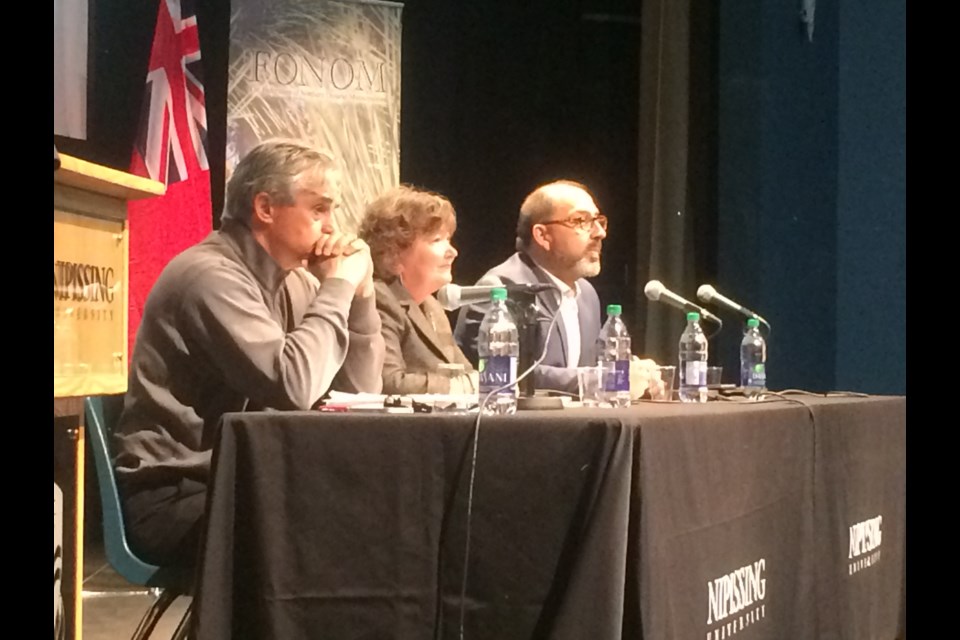The Deputy Mayor for the Township of Chisholm told the Minister of Natural Resources and Forestry on Friday, that there aren’t enough moose tags available in the north for hunters who rely on the meat for sustenance. David Hodgins told Kathryn McGarry the number of adult moose tags available in wildlife management unit 47 have been reduced from six, down to just one.
“There’s a lot of small communities in there," said Hodgins.
"There’s very little economic opportunities for the people to buy meat, and so they rely on those moose tags to fill their freezer. You’re almost forcing them to go on social assistance so they can eat and I don’t think that’s fair.”
The MNRF Minister was taking part in a Minister’s Forum, during the final day of the Federation of Northern Ontario Municipalities Conference in North Bay. Another delegate told the minister that the distribution of moose tags is run more as a business, than as a way of life. McGarry responded by saying her ministry recently worked on a moose and bear project, to ensure there is a sustainable moose population in the province moving forward.
“We’ve spent a great deal of time looking at all the data to find out what our population is, so we will continue to work with individuals and organizations and our stakeholders to establish where our moose population sits, and to look at whether we need to change year on year, the regulations surrounding the moose harvest itself,” said McGarry.
Energy Minister Glenn Thibeault also took part in the panel discussion. He was asked if his ministry would consider providing a hydro break for emergency services. The minister pointed to Thursday’s announcement by the province, that it is cutting hydro rates by 25 percent.
‘For those of us in Northern Ontario, especially some of the smaller communities that rely on our arenas and our schools as some of those places that are emergency gathering centres, of course I’m open to having a conversation but it’s not necessarily giving them a reduction in their bills," said Thibeault.
"Let’s look at some of the technology that we have in place to ensure that if there ever was an unfortunate crisis, that there’s a way that they actually can get power.”
Minister of Municipal Affairs and Housing, Bill Mauro, rounded out the panel. When asked about ‘orphan patients,’ those without primary care in the north, the minister said the province continues to make progress and massive investments in health care.
The ministers were also reminded that the north’s population is on the decline, and the need for job creation has never been stronger. They responded by saying everyone needs to do a better job promoting life in Northeastern Ontario, encouraging them to engage the three levels of government in that conversation. North Bay City Councillor Mark King who chairs council’s Social Services committee, suggested the provincial government relocate some of its agencies to the north.
“We’re crowding people into the GTA, and the province itself is doing that," said King.
"The question is, when will they decentralize and when will they start to move people out of that particular area because the growth is unbelievable.”
